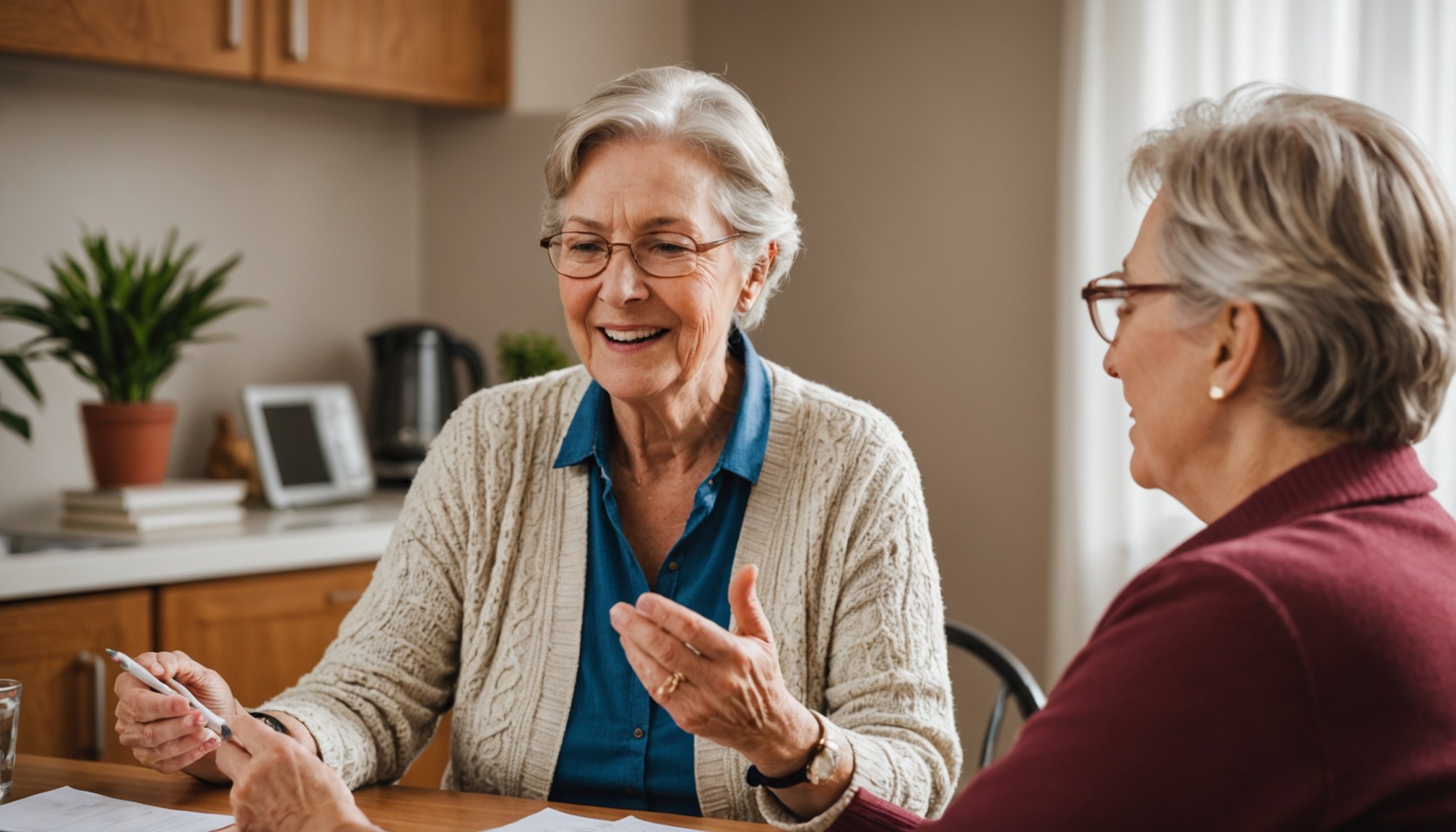Understanding Stress and Its Impact on Seniors
The stress in seniors tends to increase due to a variety of unique challenges they tend to face. These include physical health decline, financial concerns, and loss of loved ones. These factors contribute to a higher baseline of stress compared to younger demographics. Stressors can significantly impact mental well-being, increasing the risk of anxiety and depression among older adults. The connection between stress and health issues becomes more evident with prolonged exposure. Chronic stress has been linked to heart disease, diabetes, and compromised immune function, which are prevalent concerns in senior populations.
Seniors experiencing stress may also notice cognitive declines or sleep disturbances, further affecting their quality of life. Understanding the effects of stress is critical for improving seniors’ health. Identifying symptoms such as irritability, fatigue, or muscle tension early on can prompt proactive measures.
In the same genre : Designing ideal therapeutic gardens for seniors with mobility limitations: enhancing well-being through nature
Addressing common senior stressors requires a comprehensive approach, focusing on physical, emotional, and social well-being. By promoting mental well-being, seniors can strengthen resilience against external stressors and foster a positive outlook. Strategies tailored to seniors’ needs can be incredibly beneficial, encouraging a healthy, fulfilling lifestyle. Developing coping mechanisms and encouraging open discussions about their stress can markedly improve the overall life satisfaction of older adults.
Physical Activities for Stress Relief
Engaging in physical activity is crucial for seniors seeking to alleviate stress. Regular movement not only boosts physical health but also enhances mental well-being by releasing endorphins. Identifying suitable exercises for this demographic ensures safety and effectiveness. Activities like walking, swimming, and yoga come highly recommended, as they are low-impact yet beneficial in maintaining a routine.
In the same genre : Essential balance workouts for seniors: effective strategies to safeguard against falls
Types of Exercises Suitable for Seniors
Walking is a straightforward and accessible option, allowing seniors to manage their pace and distance comfortably. It benefits cardiovascular health while offering a chance to enjoy the outdoors—a natural mood booster. Yoga and tai chi are exemplary in promoting mental well-being and flexibility. They focus on breathing and movement coordination, which soothe the mind and reduce stress levels. Additionally, swimming offers a full-body workout that is gentle on joints, enhancing both physical and mental resilience.
Reducing Stress through Physical Activity
Engaging in regular physical activities helps decrease stress hormone levels and increase overall vitality. This holistic approach also aids in better sleep patterns among seniors, potentially mitigating stress-related sleep disturbances. By incorporating these exercises into daily routines, seniors may improve life quality, encouraging a healthier lifestyle balance.
Relaxation Techniques
Implementing relaxation methods is crucial for effective stress management. Techniques like deep breathing and progressive muscle relaxation can help seniors find a sense of calm and ease daily stress. Starting with deep breathing, this method involves focusing on taking slow, deep breaths to activate the body’s relaxation response. By breathing deeply through the nose, holding for a moment, and exhaling through the mouth, seniors can immediately feel more at ease.
Practicing Relaxation Exercises
Calming exercises can be integrated into daily routines effortlessly. Progressive muscle relaxation involves tensing and then releasing different muscle groups, starting from the toes and working upwards. This not only alleviates muscle tension but also calms the mind. Consistency is vital; incorporating these exercises for a few minutes daily can yield substantial benefits over time.
Relaxation techniques play a significant role in enhancing emotional health. They help decrease cortisol levels and support overall well-being. By practising these exercises, seniors can develop stronger coping mechanisms and feel more in control of their emotional responses. The benefits of making relaxation a habitual practice are extensive, ultimately contributing to improved mental and physical health in seniors.
Mindfulness and Meditation Practices
Seniors can enhance their emotional wellness by embracing mindfulness and meditation. Mindfulness involves being present, focusing on the current moment without judgment. This simple practice can reduce stress levels, improve concentration, and increase overall emotional wellness. Meditation, a core aspect of mindfulness, provides numerous benefits, especially for seniors aiming to maintain mental clarity and reduce anxiety.
Practical Mindfulness Exercises
Simple meditation practices such as mindfulness breathing exercises are ideal for beginners. This involves sitting in a comfortable position, closing the eyes, and focusing on breathing, allowing thoughts to come and go without attachment. For a more structured approach, guided meditations available online can introduce seniors to a variety of techniques focusing on relaxation and stress relief.
Incorporating mindfulness exercises into daily life doesn’t need to be complex. Seniors can engage in mindful walking, consciously paying attention to each step and breath, or practice mindful eating by savouring each bite. These exercises not only provide stress relief but also contribute to a deeper sense of emotional well-being. By consistently practicing mindfulness and meditation, seniors can develop greater mental resilience, enhancing their capacity to handle daily stressors effectively.
Social Engagement as Stress Relief
Maintaining social connections is crucial for seniors to achieve effective stress relief. Engaging in social activities can be a powerful buffer against anxiety and depression, commonly exacerbated by isolation. Recognising the importance of social bonds, seniors should be encouraged to participate in community involvement and foster companionship.
Understanding the variety of social activities available can help seniors choose enjoyable options. Group outings, game nights, and book clubs are popular choices that promote interaction. Volunteering offers a sense of purpose and reinforces one’s belonging to a community. Community centres often provide activities tailored specifically for seniors, enabling them to connect with peers.
Companionship significantly benefits seniors by alleviating loneliness and offering emotional support. Having friends or family around provides comfort and a network to rely on during stressful times. Regular social contacts are associated with improved mental well-being and can even enhance cognitive functions.
Furthermore, organising technology-assisted gatherings, like virtual chats or social media groups, ensures seniors unable to attend physical meetings can maintain their social networks. By embracing diverse forms of social activities, seniors can experience greater happiness, improved emotional health, and reduced stress levels.
Dietary Recommendations for Stress Reduction
For seniors, nutrition plays a pivotal role in managing stress. Choosing the right foods can significantly influence mental well-being, boosting mood and emotional resilience. Here’s a closer look at dietary considerations that support stress management in older adults.
Hydration is crucial. Seniors should aim to consume plenty of water throughout the day, as dehydration can escalate stress and impact cognitive functions. Making a habit of drinking water regularly can be a simple yet effective stress-reduction strategy.
A balanced diet rich in fruits, vegetables, and whole grains is essential. Omega-3 fatty acids found in fish like salmon have been shown to reduce anxiety and depression. Additionally, foods high in antioxidants, such as berries and leafy greens, combat oxidative stress, promoting overall brain health.
Creating a diet rich in nutritious foods supports the body’s stress response. Include nuts and seeds for their B vitamins, which are linked to better mood regulation. Integrating these elements into daily meals can pave the way for a more positive and stable emotional state.
Lastly, consider consulting with a nutritionist to tailor dietary plans specific to senior needs, ensuring that all dietary adjustments are suitable for individual health conditions. Such guidance empowers seniors to make informed nutritional choices conducive to reduced stress and improved well-being.
Expert Opinions and Testimonials
There are valuable insights from healthcare professionals regarding managing stress effectively in seniors. Experts emphasize the importance of integrating holistic strategies such as physical activity, relaxation methods, and balanced nutrition to mitigate stress. Dr. Emily Tanner, a geriatric specialist, suggests regular movement as crucial for maintaining both physical and mental well-being. Similarly, Dr. Robert Hayes, a psychologist, advocates for mindfulness practices, noting their positive impact on emotional wellness.
In addition to professional advice, testimonials highlight real-world success. Mary, a 72-year-old retiree, shares how incorporating daily walks and meditation transformed her life, reducing anxiety and improving her mental well-being significantly. Her story underscores the practical benefits of these approaches.
Credibility in stress relief strategies is paramount, as emphasised by experts. They recommend verifying the sources of information and consulting healthcare providers when in doubt. Seniors and their caregivers can rely on reputable data and experiences shared by others to navigate stress management strategies confidently. By drawing on professional advice and peer stories, older adults can embrace effective methods that resonate with their unique needs, creating a supportive environment for stress relief and enhancing their overall quality of life.

